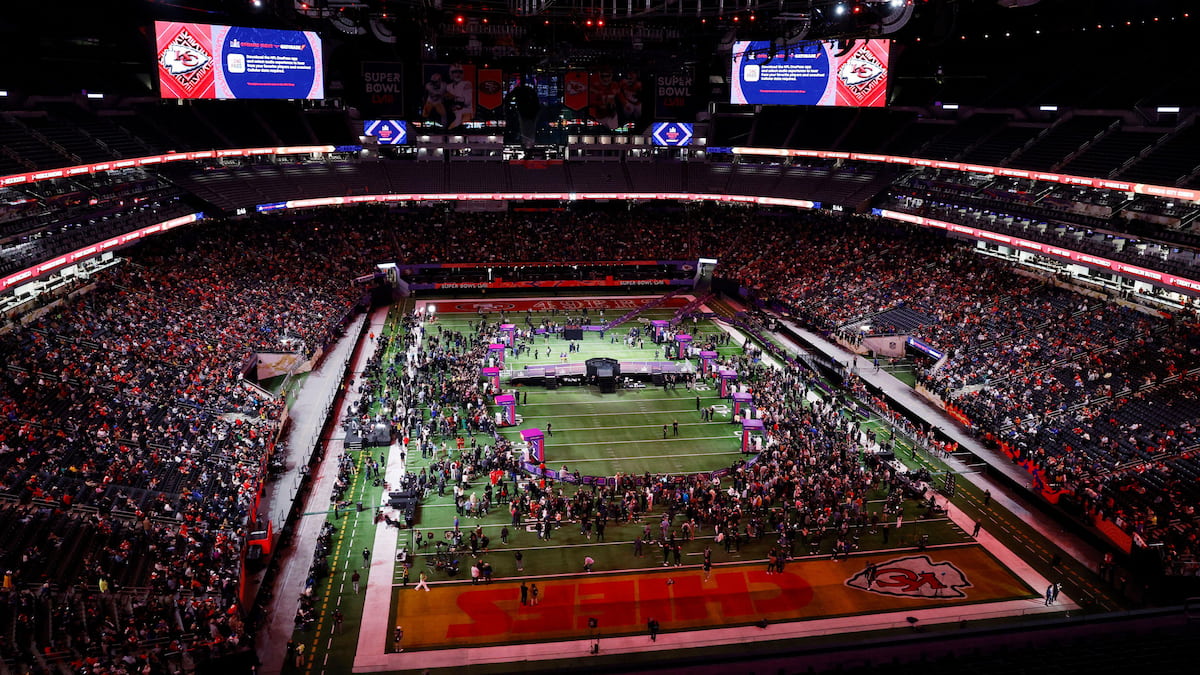Latest Sports Picks, News and Previews

Heading into the 2024-25 season, the Kansas City Chiefs have an opportunity to become the first team in NFL history to win three straight Super Bowls. Of course, 31 other teams are looking to shut down that goal, but either way, the Super Bowl has proven to be the most exciting sporting event of the year, even for the most casual of sports fans. Therefore, looking back at the longest Super Bowls ever is always interesting.
If you’re anything beyond just a casual NFL fan, then you’re likely aware that there haven’t been many Super Bowls to go to overtime. There have been just two, one of which was the most recent Super Bowl! Not only was it #1 on the list of the longest Super Bowls, but it also surpassed the previous longest. So, the longest Super Bowl of all time was on February 11, 2024, between the San Francisco 49ers and Kansas City Chiefs.
We began by stating that the Chiefs will be going for a three-peat this season, thanks to going back-to-back with a 25-22 overtime win against the 49ers. It was a game that featured not only the longest-made field goal in Super Bowl history (55 yards) but two of them, later broken with a 57-yarder. It was also a field goal that gave the 49ers a 19-16 lead with less than two minutes remaining in regulation. However, Chiefs kicker Harrison Butker tied things at 19-19 with just three seconds left.
As for overtime, it was the first Super Bowl to go into the extra session since the rule change for OT in the postseason, meaning that both teams were guaranteed possession. Beginning with the 49ers, the teams traded field goals to make the score 22-22. Ultimately, a three-yard touchdown pass from Chiefs QB Patrick Mahomes to WR Mecole Hardman won them their second straight Super Bowl and etching history as the #1 on the list of the longest Super Bowls.
While the Chiefs look to make history this upcoming season, the New England Patriots have made plenty over the past two decades. Better yet, they were the last team to have a chance to win three straight Super Bowls, and amid their dynasty was one of the most polarizing Super Bowls in NFL lore.
Unfortunately for former QB Matt Ryan and the Atlanta Falcons, it feels as though the franchise has now been defined by this epic collapse. Despite the Patriots being clear favorites to hoist the Lombardi Trophy again, the Falcons went into halftime with a commanding 21-3 lead and even extended it to 28-3 at the start of the second half. After displaying such dominance, it seemed impossible for then-QB Tom Brady and company to come back.
However, as we’ve seen throughout his illustrious career, Brady and head coach Bill Belichick were able to pull off the unthinkable. Even as they began their comeback, New England kicker Stephen Gostkowski missed the extra point following their first touchdown, making the score just 28-9. There was also a failed onside kick following that touchdown possession, so it was still looking grim for the Pats.
Worse yet, as the third quarter was concluding, the Falcons had a 99.8% chance of winning, per ESPN and Pro Football Reference. New England didn’t seem to get the memo, as they owned the fourth quarter to create the NFL’s first-ever overtime Super Bowl. As if the Falcons weren’t deflated enough, they lost the overtime coin toss. That ultimately led to a Patriots touchdown for their fifth Lombardi Trophy in 15 years.
While these are the only two Super Bowls to go into overtime, we’d be remiss not to mention Super Bowl XLVII, where the Baltimore Ravens defeated the San Francisco 49ers. In terms of elapsed time, this was the longest Super Bowl, thanks to a power outage in the stadium. That 34-minute stoppage caused the game to lapse four hours and 14 minutes from the opening kickoff to the final whistle.

Mark has been a lifelong fan of all sports, and five years ago turned it into a profession, specializing in the NFL, NHL and MLB. He is a diehard Baltimore Ravens fan and has had his work published in sites such as Sports Illustrated, Pickswise and other top outlets.